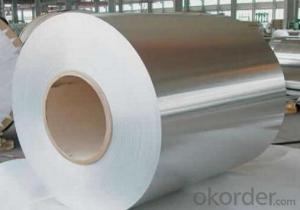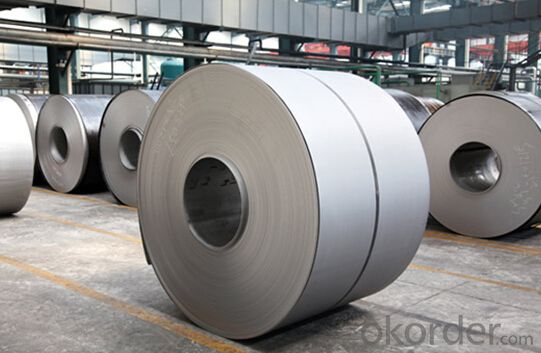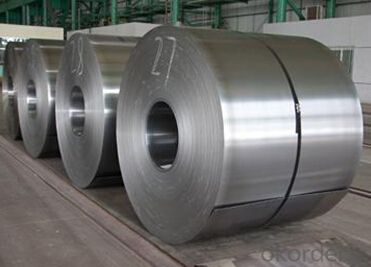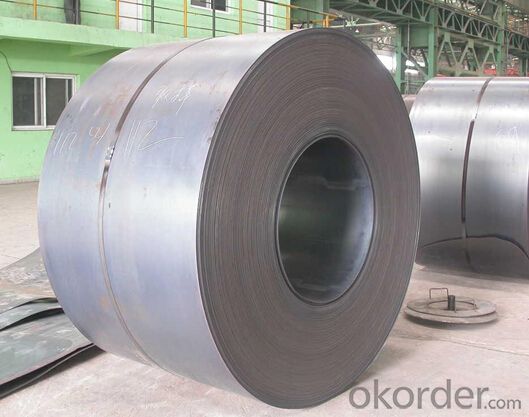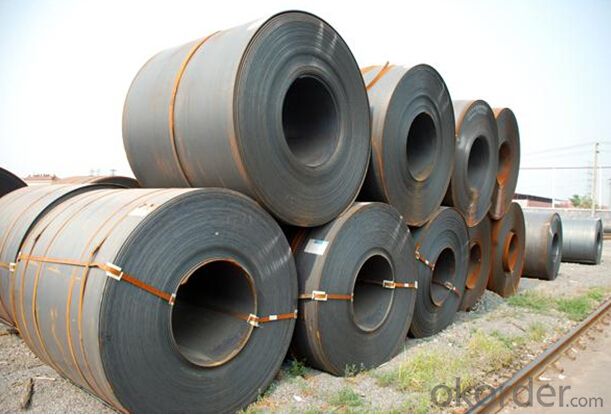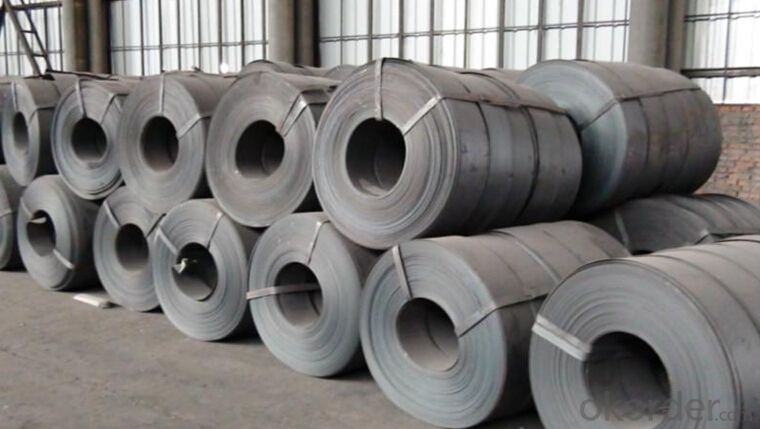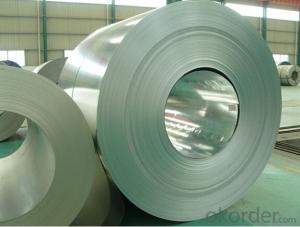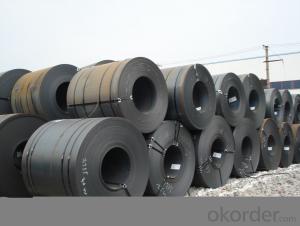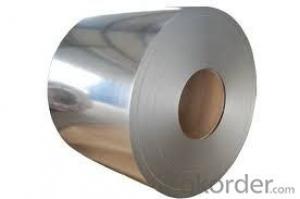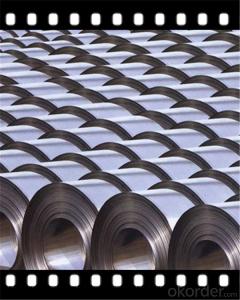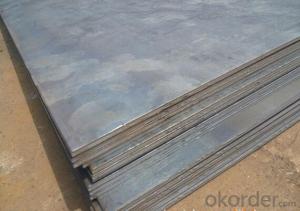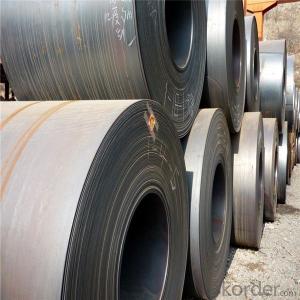3mm_4mm Hot Rolled Steel Coil HR Coil/Sheet
- Loading Port:
- Tianjin
- Payment Terms:
- TT OR LC
- Min Order Qty:
- 25 m.t.
- Supply Capability:
- 10000 m.t./month
OKorder Service Pledge
OKorder Financial Service
You Might Also Like
Specification
3mm_4mm Hot Rolled Steel Coil HR Coil/Sheet
Quick Details
Name | Hot Rolled Steel Coil |
Standard | GB/ASTM/SAE/AISI/DIN/JIS/EN/BS |
Surface Treatment: | Black/Peeling/Polished/Machined |
Delivery Condition: | Hot Rolled or Forged/Peeled or Black Surface |
Test | SGS/UT 100% Elements Testing |
Certificate: | ISO/Mill Certificate |
Service: | 24 hours online service / |
more than 20 years trading and manufacture | |
Quality Assurance: | the third party inspection, such as SGS, BV, TUV…etc. is acceptable |
Packaging Details: | Seaworthy Packaging or as per customer's packing instruction |
Specification
Standard | Grade | General Size | Delivery Condition |
ASTM A36 | A36/A36-B | 5-20 * 2300-2500 * C | Boron added or Black Condition |
ASTM A283 | A283-B/A283C | 5-20 * 2300-2500 * C | Boron added or Black Condition |
ASTM A572 | A572Gr50-B/A572Gr42-B | 5-20 * 2300-2500 * C | Boron added or Black Condition |
ASTM A515 | A515Gr70 | 5-20 * 2300-2500 * C | Black Condition |
ASTM A516 | A516Gr70 | 5-20 * 2300-2500 * C | Black Condition |
JIS G 3101 | SS400-B | 5-20 * 2300-2500 * C | Boron added or Black Condition |
JIS G3136 | SN400B | 5-20 * 2300-2500 * C | Boron added or Black Condition |
EN10025-2:2004 | S235JR-S355K2+N | 5-20 * 2300-2500 * C | Boron added or Black Condition |
EN10025-5:2004 | S355J2W/S355K2W | 5-20 * 2300-2500 * C | Black Condition |
Application | Widely used in petrochemistry,chemistry,electricity,boiler and vessel manufacture,and could | ||
be made into reactor,heat exchange facility,segregator,sphere vessel,oil tank,liquid gas storage | |||
tank,nuclear reactor press shell,turbine and other machines | |||
Company Information
CNBM International Corporation is the most import and export platform of CNBM group(China National Building Material Group Corporation) ,which is a state-owned enterprise, ranked in 270th of Fortune Global 500 in 2015.
With its advantages, CNBM International are mainly concentrate on Cement, Glass, Iron and Steel, Ceramics industries and devotes herself for supplying high quality series of refractories as well as technical consultancies and logistics solution.
After-sale service | l CNBM provides the services and support you need for every step of our cooperation. We’re the business partners you can trust; you can relax and get on with doing business. |
l For any problem, please kindly contact us at any your convenient time, we’ll reply you in our first priority within 24 hours | |
Advantages | Industry experience over 20 years. |
Shipment of goods -More than 70 countries worldwide. | |
The most convenient transport and prompt delivery. | |
Competitive price with best service. | |
High technical production line with top quality products. | |
High reputation based on best quality products. |
Product Show
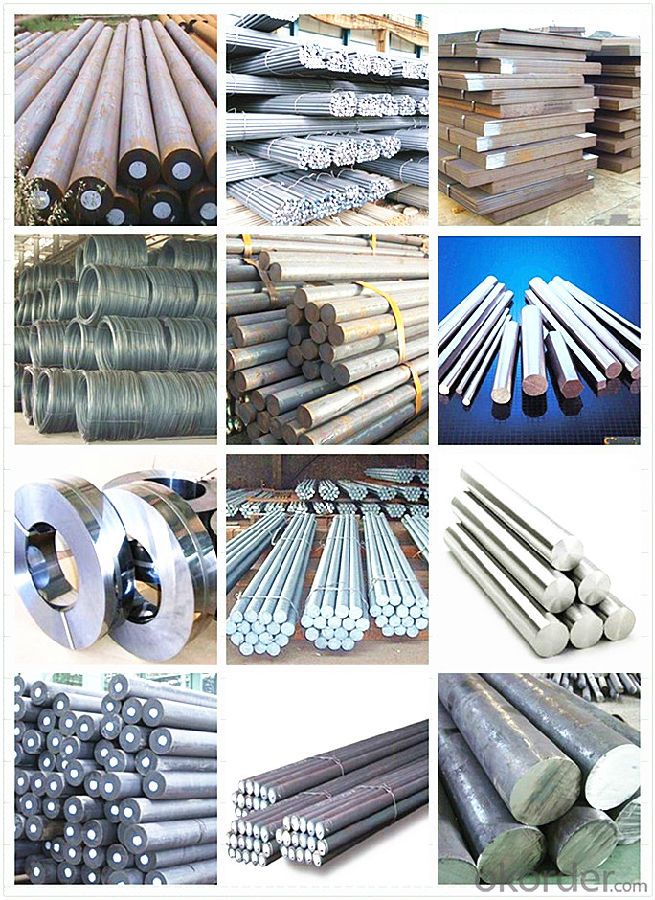
FAQ
Are you a trading company or manufacturer? | Manufacturer |
What’s the MOQ? | 3 metric ton |
What’s your delivery time? | 15-35 days after downpayment received |
Do you Accept OEM service? | Yes |
what’s your delivery terms? | FOB/CFR/CIF |
What's the Payment Terms? | 30% as deposit,70% before shipment by T/T |
Western Union acceptable for small amount. | |
L/C acceptable for large amount. | |
Scrow ,Paybal,Alipay are also ok | |
Why choose us? | Chose happens because of quality, then price, We can give you both. |
Additionally, we can also offer professional products inquiry, products knowledge train (for agents), smooth goods delivery, excellent customer solution proposals. | |
What's your available port of Shipment? | Main Port, China |
What’s your featured services? | Our service formula: good quality+ good price+ good service=customer's trust |
Where are your Market? | Covering more than 160 countries in the world |
- Q: How does special steel contribute to the automotive exhaust system industry?
- Special steel plays a crucial role in the automotive exhaust system industry by offering several significant contributions. Firstly, special steel, such as stainless steel, is highly resistant to corrosion, which is a common issue faced by exhaust systems due to the exposure to high temperatures and corrosive gases. This corrosion resistance ensures the longevity and durability of the exhaust system, reducing the need for frequent replacements and repairs. Moreover, special steel possesses excellent heat resistance properties. The exhaust system operates under extreme temperatures, and special steel can withstand these conditions without undergoing deformation or structural damage. This ability to handle high temperatures ensures that the exhaust system functions efficiently and maintains its performance over an extended period. In addition, special steel offers exceptional strength and durability. The exhaust system is subjected to constant vibrations, impacts, and stress due to road conditions and engine movements. Special steel's high strength and toughness enable the exhaust system to withstand these forces, preventing premature failures and ensuring the safety and reliability of the vehicle. Furthermore, special steel allows for the design and manufacturing of complex and lightweight exhaust system components. With advancements in steel technology, manufacturers can create intricate shapes and thin-walled structures, reducing the overall weight of the exhaust system. This weight reduction contributes to improved fuel efficiency and vehicle performance, as it reduces the overall load on the engine. Lastly, special steel provides the automotive industry with the flexibility to meet increasingly stringent emission regulations. By utilizing special steel in the exhaust system, manufacturers can incorporate catalytic converters and other emission control devices effectively. These devices play a vital role in reducing harmful emissions, such as carbon monoxide, nitrogen oxides, and particulate matter, helping vehicles meet environmental standards. In conclusion, special steel is an essential component in the automotive exhaust system industry. Its corrosion resistance, heat resistance, strength, and lightweight properties contribute to the longevity, reliability, and performance of the exhaust system. Moreover, special steel enables compliance with emission regulations, ensuring that vehicles are environmentally friendly. Overall, special steel plays a critical role in enhancing the efficiency and sustainability of the automotive exhaust system industry.
- Q: How does special steel perform in stamping applications?
- Special steel performs exceptionally well in stamping applications. It is specifically designed to withstand the intense pressure and forces involved in stamping processes. Its high strength and hardness properties enable it to maintain its shape and integrity during stamping, resulting in precise and accurate formed parts. Additionally, special steel's excellent wear resistance helps prolong tool life, reducing maintenance and replacement costs. Overall, special steel is a reliable and efficient material choice for stamping applications.
- Q: How does special steel contribute to the mining equipment industry?
- Special steel plays a crucial role in the mining equipment industry by providing enhanced durability, strength, and resistance to wear and corrosion. The mining sector relies heavily on robust and reliable equipment, as it operates in challenging and harsh environments. Special steel, which is specifically designed to withstand extreme conditions, helps to improve the overall performance and longevity of mining equipment. One of the main advantages of special steel in the mining industry is its exceptional strength. Mining equipment is subjected to intense forces, such as crushing, impact, and abrasion, which can quickly degrade conventional materials. Special steel, on the other hand, offers superior strength properties, allowing mining equipment to withstand heavy loads and resist deformation or breakage. Furthermore, special steel provides excellent resistance to wear and corrosion, which are common challenges in mining operations. The abrasive nature of rocks and minerals can quickly wear down regular steel, reducing the lifespan of equipment and increasing maintenance costs. Special steel, with its higher hardness and wear resistance, helps to minimize the impact of abrasive materials, prolonging the life of mining equipment and reducing downtime. Corrosion is another prevalent issue in the mining industry, as equipment is often exposed to moisture, chemicals, and harsh environments. Special steel is specifically formulated to resist corrosion, ensuring that mining equipment remains structurally sound and functional even in corrosive conditions. This resistance to corrosion improves the overall safety and reliability of mining operations. Moreover, special steel offers flexibility in terms of design and customization, allowing manufacturers to develop mining equipment tailored to specific needs. By utilizing different grades of special steel, manufacturers can optimize the properties of mining equipment, enabling it to meet the unique requirements of different mining applications. In conclusion, special steel significantly contributes to the mining equipment industry by providing enhanced strength, durability, wear resistance, and corrosion resistance. The utilization of special steel in mining equipment helps to improve performance, extend equipment lifespan, reduce maintenance costs, and enhance safety in mining operations.
- Q: What are the different forming techniques used for special steel?
- Some of the different forming techniques used for special steel include forging, casting, rolling, and extrusion.
- Q: How does special steel contribute to the oil and gas aftermarket industry?
- Due to its unique properties and capabilities, special steel plays a vital role in the oil and gas aftermarket industry. Its resistance to corrosion makes it well-suited for use in the harsh and corrosive environments commonly found in this sector. By preventing corrosion, special steel extends the lifespan of equipment and components, reducing the need for frequent replacements and maintenance. Additionally, special steel offers high strength and durability, enabling it to withstand the extreme pressures and temperatures encountered in oil and gas operations. This strength ensures that equipment and components made from special steel can function reliably and efficiently, even under demanding conditions. Moreover, special steel can be customized to meet the specific requirements of the oil and gas industry. With its various grades and compositions, special steel can possess specific properties, such as resistance to sulfide stress cracking, hydrogen embrittlement, and high-temperature oxidation. These tailored properties make special steel suitable for critical applications, including wellheads, pipelines, valves, and other equipment used in the oil and gas aftermarket industry. Furthermore, special steel allows for the production of complex and intricate components that are essential for the oil and gas sector. Its excellent machinability and weldability enable the creation of precision-engineered parts, ensuring the efficient and reliable operation of oil and gas equipment. In conclusion, special steel plays a significant role in the oil and gas aftermarket industry by providing corrosion resistance, high strength, durability, customization options, and the ability to manufacture intricate components. These properties make special steel indispensable in ensuring the safety, reliability, and efficiency of operations in the oil and gas sector.
- Q: How does special steel contribute to sustainable development?
- Special steel contributes to sustainable development in several ways. Firstly, it is a highly durable and long-lasting material, which means that products made from special steel have a longer lifespan and require fewer replacements. This reduces the overall consumption of resources and decreases waste generation. Secondly, special steel is often used in energy-efficient applications, such as renewable energy infrastructure and energy-efficient transportation. These applications help reduce greenhouse gas emissions and contribute to the transition to a low-carbon economy. Lastly, the production of special steel involves continuous improvements in energy efficiency, waste reduction, and recycling. This helps minimize the environmental impact of the steel industry and promotes more sustainable manufacturing practices.
- Q: How does special steel contribute to reducing maintenance costs?
- Special steel contributes to reducing maintenance costs by providing increased durability and resistance to wear and corrosion. Its superior strength and hardness properties make it less susceptible to damage, thereby reducing the frequency of repairs and replacements. Additionally, special steel's ability to withstand extreme temperatures and harsh environmental conditions extends the lifespan of components, reducing the need for frequent maintenance and associated costs.
- Q: What are the different standards and specifications for special steel?
- Special steel production and usage is governed by a variety of standards and specifications. These guidelines guarantee that the steel satisfies specific requirements and performance criteria for different purposes. Some of the commonly used standards and specifications for special steel are as follows: 1. AISI/SAE standards: Developed by the American Iron and Steel Institute (AISI) and the Society of Automotive Engineers (SAE), these standards classify special steel types based on their chemical composition and mechanical properties. They are widely used across various industries. 2. ASTM standards: The American Society for Testing and Materials (ASTM) provides standards for special steel materials in construction, manufacturing, and engineering applications. These standards define chemical composition, mechanical properties, and other necessary characteristics for specific grades of special steel. 3. EN standards: The European Committee for Standardization (CEN) has established the European Norm (EN) standards for steel products. Covering a wide range of steel grades, these standards specify chemical composition, mechanical properties, and testing procedures required for different types of special steel. 4. JIS standards: The Japanese Industrial Standards (JIS) outline the requirements for various types of steel used in Japan, including special steel. They provide guidelines for chemical composition, mechanical properties, and other quality parameters. 5. ISO standards: The International Organization for Standardization (ISO) has developed standards for steel materials used globally in different industries. These standards ensure compatibility and interchangeability of steel products by defining dimensions, tolerances, and performance requirements. 6. MIL-SPEC standards: The United States Department of Defense (DoD) has created military specifications (MIL-SPEC) for special steel used in defense applications. These standards define the requirements for special steel used in military equipment, weapons, and vehicles to ensure reliability and performance under harsh conditions. 7. API standards: The American Petroleum Institute (API) provides standards for special steel utilized in the oil and gas industry. These standards specify materials, dimensions, and other requirements for steel pipes, fittings, and equipment used in oil and gas exploration, production, and transportation. These examples represent only a fraction of the numerous standards and specifications available for special steel. Manufacturers and industries must comply with these standards to guarantee the quality, performance, and safety of special steel products in different applications.
- Q: How is HSLA steel used in the construction industry?
- HSLA steel, or High-Strength Low-Alloy steel, is widely used in the construction industry due to its superior strength and durability. It is commonly utilized in the construction of bridges, buildings, and other infrastructure projects. HSLA steel's high tensile strength allows for the creation of lighter and more efficient structures, reducing material costs and environmental impact. Additionally, its resistance to corrosion and atmospheric conditions makes it suitable for outdoor applications, ensuring the longevity of the constructed assets.
- Q: Can special steel be used in the musical instrument manufacturing industry?
- Yes, special steel can be used in the musical instrument manufacturing industry. Special steel, such as stainless steel or carbon steel, can offer durability, corrosion resistance, and unique tonal characteristics when used in the construction of musical instruments. It is commonly used for producing guitar strings, wind instrument components, and percussion instruments.
Send your message to us
3mm_4mm Hot Rolled Steel Coil HR Coil/Sheet
- Loading Port:
- Tianjin
- Payment Terms:
- TT OR LC
- Min Order Qty:
- 25 m.t.
- Supply Capability:
- 10000 m.t./month
OKorder Service Pledge
OKorder Financial Service
Similar products
Hot products
Hot Searches
Related keywords
